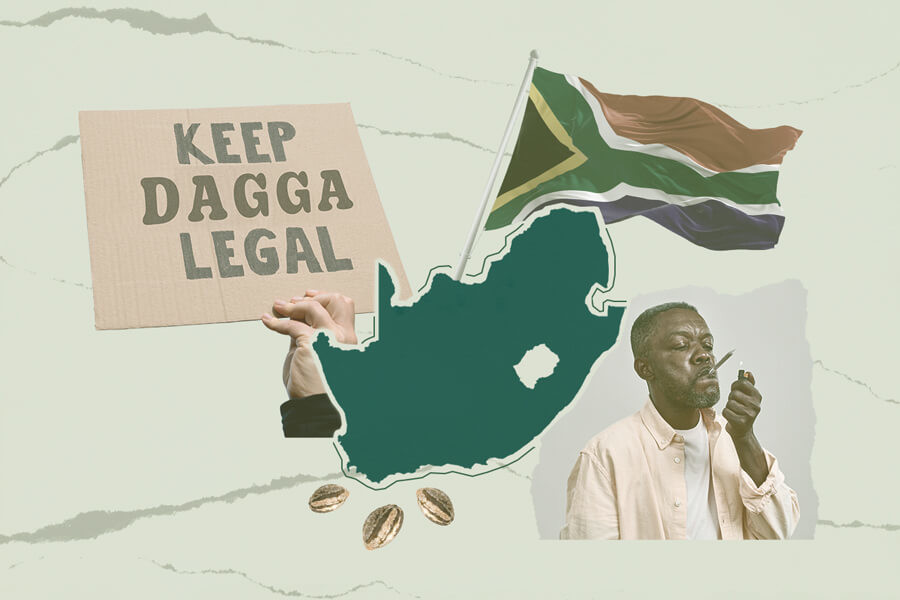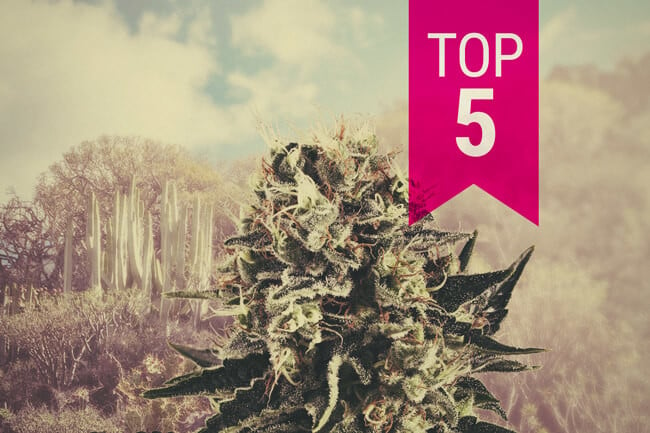.
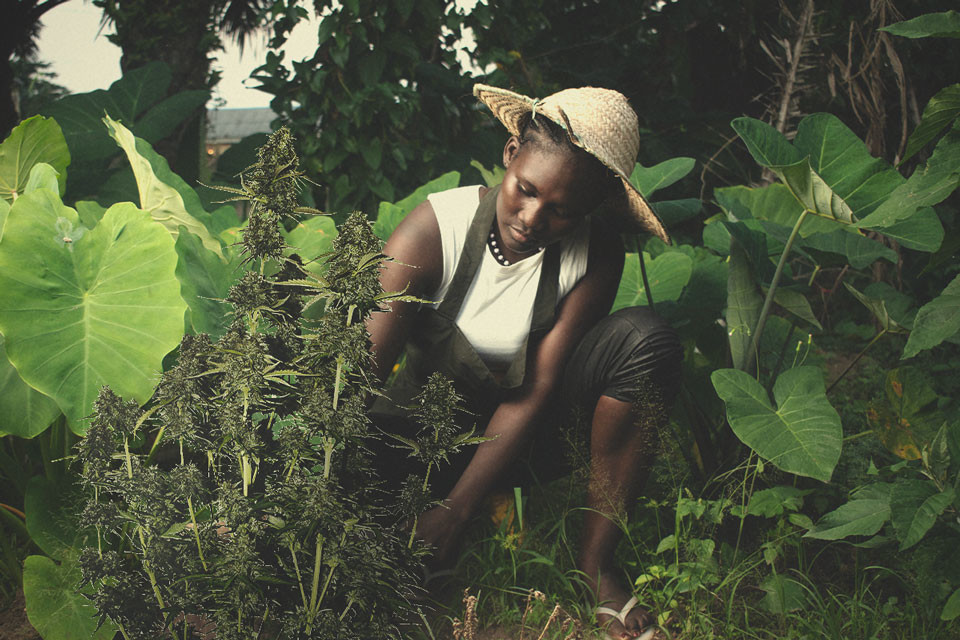
African Weed: The History of Cannabis in Africa
North Africa's modern association with cannabis is well known. However, the continent has a long and varied history involving this much-loved, and much-hated, psychotropic plant. Some of it is recorded, some deduced from archaeological evidence, and some is mere speculation. Here we delve into Africa's long relationship with marijuana.
Contents:
The origins of cannabis in Africa are varied and mysterious. That cannabis has been present in Africa for a long time is certain, but how long ago it arrived is not known.
Throughout the continent, there is evidence of cannabis use in a vast array of different cultures. As with many other aspects of African cultures, the arrival of European colonists caused drastic changes to these practices, but did not kill them. Africa has continually produced and consumed large amounts of cannabis over the centuries, and these days, more and more African nations are legalizing its production and consumption. African marijuana could one day line European shelves.
When and Where Did Cannabis Arrive in Africa?
Despite cannabis having a long association with Africa, especially Northern, Mediterranean Africa, the cannabis plant is actually not indigenous to the continent. Originally, Cannabis sativa L. evolved in Asia and gradually made its way west.
Cannabis is known to have been cultivated in Africa for at least 1,000 years. Although, there is some evidence from Egypt which suggests it may have arrived there up to 5,000 years ago. But such evidence is scant, and so exact dates are not known. The points of entry seem to be Madagascar and Mediterranean North Africa. Cannabis in North Africa arrived both through Egypt and from across the sea.
In North Africa, records stretch back further than in the sub-Saharan majority of the continent. In the 12th century CE, writers first recorded the psychotropic use of cannabis, taken both in smoked and edible forms. In Egypt and along the red sea, cannabis culture was similar to that of the Levant. However, moving west, the Maghreb (Morocco, Algeria, and Tunisia) developed its own, unique culture.
Despite the area's association with hashish production, that is actually a very recent development. In fact, hashish actually appears to have been imported from Greece, Turkey, and Lebanon; not until 1921 is there evidence of hashish production in the Maghreb.[2]
Tracing Cannabis Use Through Language
Going south of the Sahara, the history becomes more murky. This is in part due to a lack of archaeological evidence, and in part because the evidence we do have—from colonists—is incorrect. For instance, their cannabis was often referred to as “African tobacco”. Whether this was a deliberate attempt to distance their own practice from those of native Africans, or simply a misunderstanding of what was being consumed, is unclear. Fortunately, it's fairly clear what they were actually referring to.
One of the most useful words when it comes to tracking cannabis use in Southern Africa is “dagga”.
Dagga: An Etymological Journey
Dagga, from “dacha”, is a word attributed to the Khoekhoe people of Southern Africa (although its exact origins are unclear), meaning “cannabis”. However, it also refers to a general state of intoxication, and to Leonotis leonurus—a member of the mint family with serrated leaves similar to that of the cannabis plant.
The first record of the word is from Jan van Riebeeck’s journal, in 1658, spelled “daccha” (more on this later).
By the time he recorded it, its usage appeared to have spread throughout multiple peoples. Although this can’t tell us how long it was used before that, it implies that cannabis use must have been fairly prevalent for a significant period of time.
Its exact origin will, it seems, remain unknown. This is due to the apparent confusion between cannabis and Leonotis leonurus. Yes, they share a name and serrated leaves, but the flowers are very different—and only one of them causes a high. Therefore, it is unclear whether the word originated to describe one or the other, or was wrongly applied at some point. This confusion has led some scholars to propose different explanations.
One posits that, in fact, it is not an African word, and instead came from the Dutch “tabak”, in which case it tells us nothing of Africa's pre-colonial cannabis usage. Another theory suggests it comes from daXa-b, the Khoekhoe word for tobacco. If prefixed with "!am", the word for green, it becomes amaXa-b—green tobacco. This is the explanation proposed by Brian tu Toit and Jean Branford.[3]
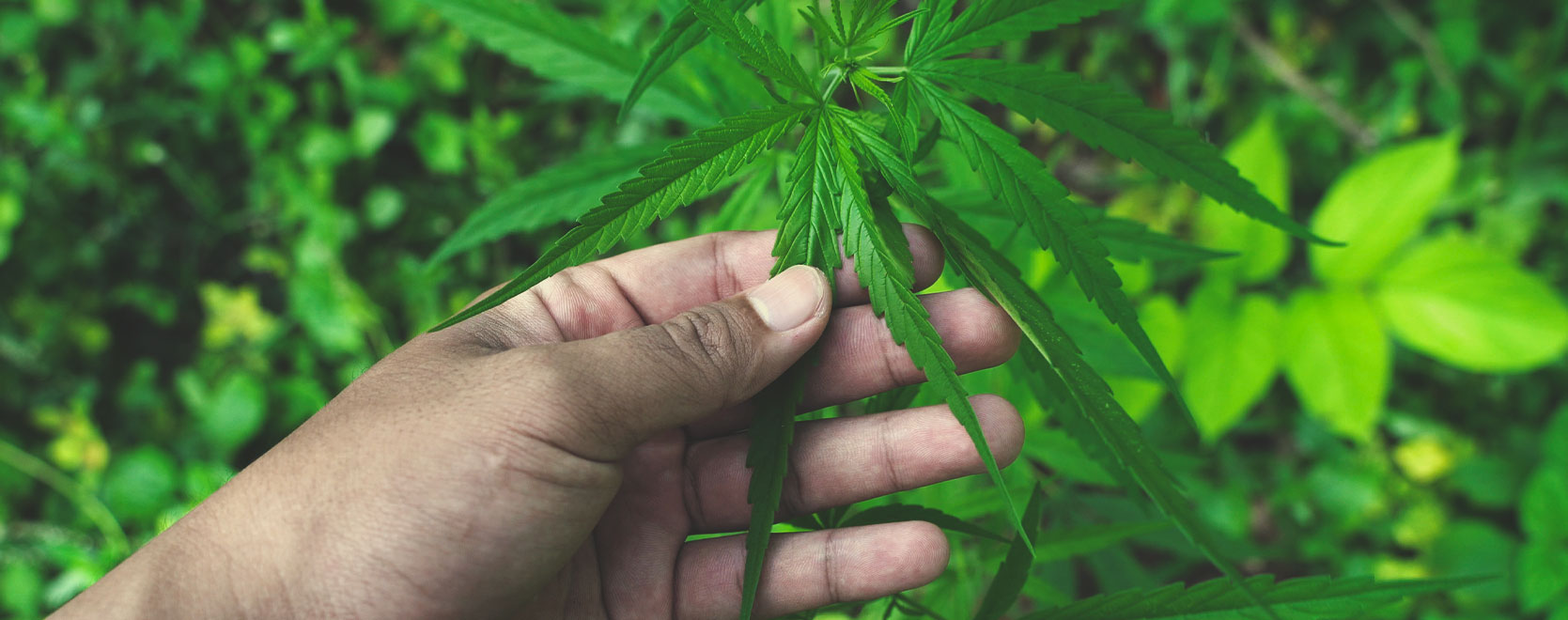
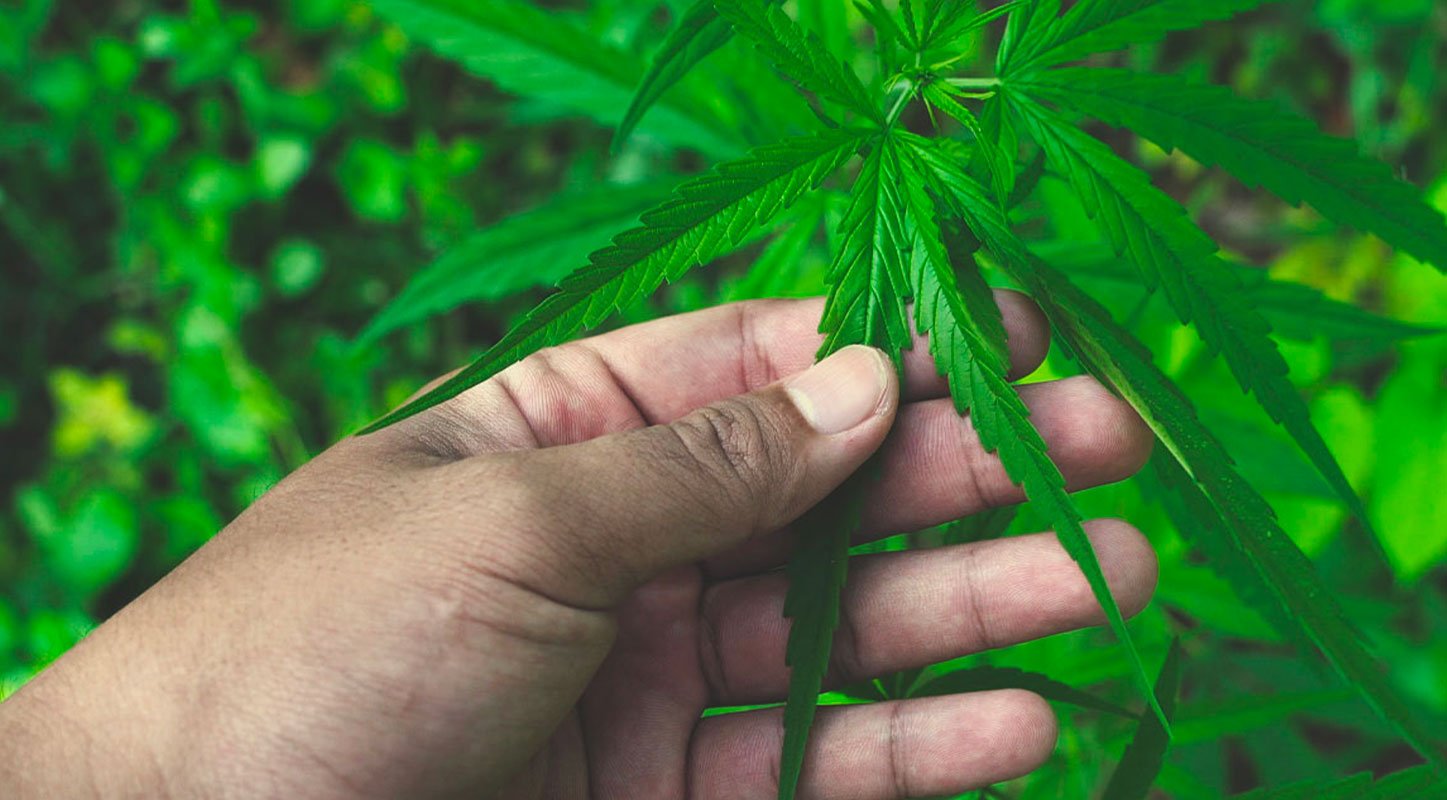
Who Used Cannabis in Africa?
Cannabis use in Africa, while widespread, has been by no means equal throughout the continent. For instance, cannabis seems only to have come to parts of West Africa during the 20th century. But as we’ve seen, it has been present in other parts of the continent for thousands of years.
| Ancient Egypt | Cannabis use in Egypt is hard to date exactly, but we do know it is old. For instance, hemp ropes[4] and fabrics have been dated back to the ancient Egyptians. Moreover, it is possible that its many cannabinoids were put to holistic use. The word shemshemet[5] crops up regularly in ancient Egyptian medical texts, and is widely accepted to mean cannabis. Its uses ranged from the holistic to the ritualistic. Whether the ancients cultivated it or imported it is unclear. |
| The Khoekhoe |
The Khoekhoe people of Southern Africa were renowned among the Dutch Boer settlers for their use of cannabis. Once warlike, these people were, by the time the Dutch arrived, a mostly peaceful people who focused on cattle farming. Initially, they and the Dutch settlers coexisted peacefully, and could even be said to have been friendly. In time, however, the Boers encroached ever more on their land, stole their cattle, and eventually began to enslave them. It is from the Khoekhoe that van Riebeeck learned the word “dagga”. He noted that to them it was more treasured than gold, implying that it was essential to their culture. However, it wasn’t until 1705 that they learned to smoke it. Previously, they had chewed it. This practice then quickly spread to other African cultures. |
| The Zulus | Though, as will be seen, many colonists lamented the sedentary effects of cannabis among native Africans, this view was not inclusive of the whole picture. While the exact usage is not understood, it is thought that (according to AT Bryant) the fierce Zulu people used cannabis prior to going into battle. Although, records confirming this are thin, so this should not be taken as fact. |
| The Bashilange | The Bashilange people, once supposedly violent, apparently went through a rapid and extreme cultural evolution upon discovering cannabis—or “riamba”. In fact, according to Wissmann, they even changed their name to Ben-Riamba, meaning “from hemp”.[7] Every evening, the village would engage in cannabis smoking ceremonies. And on special days, they would indulge even more. Even punishment involved smoking cannabis. The greater the crime, the more the perpetrator had to smoke. For the greatest of crimes, they had to smoke cannabis until they passed out, and pay compensation to the victim in the form of salt. Due to the change in culture, hierarchies were no longer upheld, and the neighbouring villages, once vassals, refused to pay their taxes as the Bashilange had relinquished their spears. Rebellion broke out. The royal family were accused of sorcery and sentenced to trial by, unsurprisingly, smoking cannabis. Once they passed out, some of the villagers attempted to assassinate them. Others intervened. The rebels fled, only to return and not face punishment. Despite the failed assassination attempt, the end was near at hand. The family were soon deposed, and the riamba cult was ended. Nevertheless, many of the practices were retained, including the less-severe punishments for crimes. |
| Ancient Egypt |
|
Cannabis use in Egypt is hard to date exactly, but we do know it is old. For instance, hemp ropes[4] and fabrics have been dated back to the ancient Egyptians. Moreover, it is possible that its many cannabinoids were put to holistic use. The word shemshemet[5] crops up regularly in ancient Egyptian medical texts, and is widely accepted to mean cannabis. Its uses ranged from the holistic to the ritualistic. Whether the ancients cultivated it or imported it is unclear. |
| The Khoekhoe |
|
The Khoekhoe people of Southern Africa were renowned among the Dutch Boer settlers for their use of cannabis. Once warlike, these people were, by the time the Dutch arrived, a mostly peaceful people who focused on cattle farming. Initially, they and the Dutch settlers coexisted peacefully, and could even be said to have been friendly. In time, however, the Boers encroached ever more on their land, stole their cattle, and eventually began to enslave them. It is from the Khoekhoe that van Riebeeck learned the word “dagga”. He noted that to them it was more treasured than gold, implying that it was essential to their culture. However, it wasn’t until 1705 that they learned to smoke it. Previously, they had chewed it. This practice then quickly spread to other African cultures. |
| The Zulus |
|
Though, as will be seen, many colonists lamented the sedentary effects of cannabis among native Africans, this view was not inclusive of the whole picture. While the exact usage is not understood, it is thought that (according to AT Bryant) the fierce Zulu people used cannabis prior to going into battle. Although, records confirming this are thin, so this should not be taken as fact. |
| The Bashilange |
|
The Bashilange people, once supposedly violent, apparently went through a rapid and extreme cultural evolution upon discovering cannabis—or “riamba”. In fact, according to Wissmann, they even changed their name to Ben-Riamba, meaning “from hemp”.[7] Every evening, the village would engage in cannabis smoking ceremonies. And on special days, they would indulge even more. Even punishment involved smoking cannabis. The greater the crime, the more the perpetrator had to smoke. For the greatest of crimes, they had to smoke cannabis until they passed out, and pay compensation to the victim in the form of salt. Due to the change in culture, hierarchies were no longer upheld, and the neighbouring villages, once vassals, refused to pay their taxes as the Bashilange had relinquished their spears. Rebellion broke out. The royal family were accused of sorcery and sentenced to trial by, unsurprisingly, smoking cannabis. Once they passed out, some of the villagers attempted to assassinate them. Others intervened. The rebels fled, only to return and not face punishment. Despite the failed assassination attempt, the end was near at hand. The family were soon deposed, and the riamba cult was ended. Nevertheless, many of the practices were retained, including the less-severe punishments for crimes. |
Cannabis in Colonial Africa
As can be seen, many of the records of cannabis in sub-Saharan Africa come from colonists. Initially, cannabis cultivation and consumption was accepted (if not encouraged). Between the 1870s and 1890s, it was even legal in much of colonised Africa.
As time went on, however, cannabis use became less and less accepted.
Colonial Views on Cannabis Consumption
One of the major reasons the colonists began to turn against the native use of cannabis was that they thought it made the population lazy, and thereby reduced the efficacy of their workforce. As Henry M Stanley said:
“Certainly most deleterious to the physical powers is the almost universal habit of vehemently inhaling the smoke of the Cannabis sativa or wild hemp. In a light atmosphere, such as we have in hot days in the Tropics, with the thermometer rising to 140 Fahr. in the sun, these people, with lungs and vitals injured by excessive indulgence in these destructive habits, discover they have no physical stamina to sustain them. The rigor of a march in a loaded caravan soon tells upon their weakened powers, and one by one they drop from the ranks, betraying their impotence and infirmities”.
Some others viewed the use of cannabis as an immoral, anti-Christian practice. As a consequence, many missionaries began to view curbing this aspect of African cultures as essential to saving their ganja-ridden souls.
Where cannabis cultivation was encouraged, it was primarily for export as a product to Europe, where it was used for its fibres.
The Prohibition of Cannabis in Africa
After 1890, various colonies moved to criminalise cannabis cultivation and use. However, it was politics happening thousands of miles to the West, across the Atlantic, that finally caused a blanket ban on cannabis in Africa. With growing hysteria in the US surrounding marijuana, there were international moves to ban it. The war on drugs was beginning.
In 1925, the League of Nations agreed to ban cannabis as part of the Geneva Opium Convention.
The Growth of Illegal Cannabis Markets
But people will continue to cultivate and smoke weed even where it is illegal, and Africa has been no different.
Even before cannabis was criminalised, there was growing suppression of it. Cultivation and consumption became increasingly hidden. In time, what was once a widespread activity became mostly relegated to those considered to be at the bottom of society.
Returning to the word dagga is a good example of how cannabis was suppressed in Africa. In Afrikaans, the suffix “-ga” is used to denote something bad, something that causes disgust. As such, the National Party of South Africa began using this to pejorate the word dagga. Even today, many pro-cannabis campaigners will not use the word dagga because of this.
In spite of a growing sentiment against cannabis, illegal cultivation was, and still is, practised on a huge scale across the continent. Until the recent legalization of cannabis in Morocco, it was the world’s biggest exporter of illegally grown marijuana.
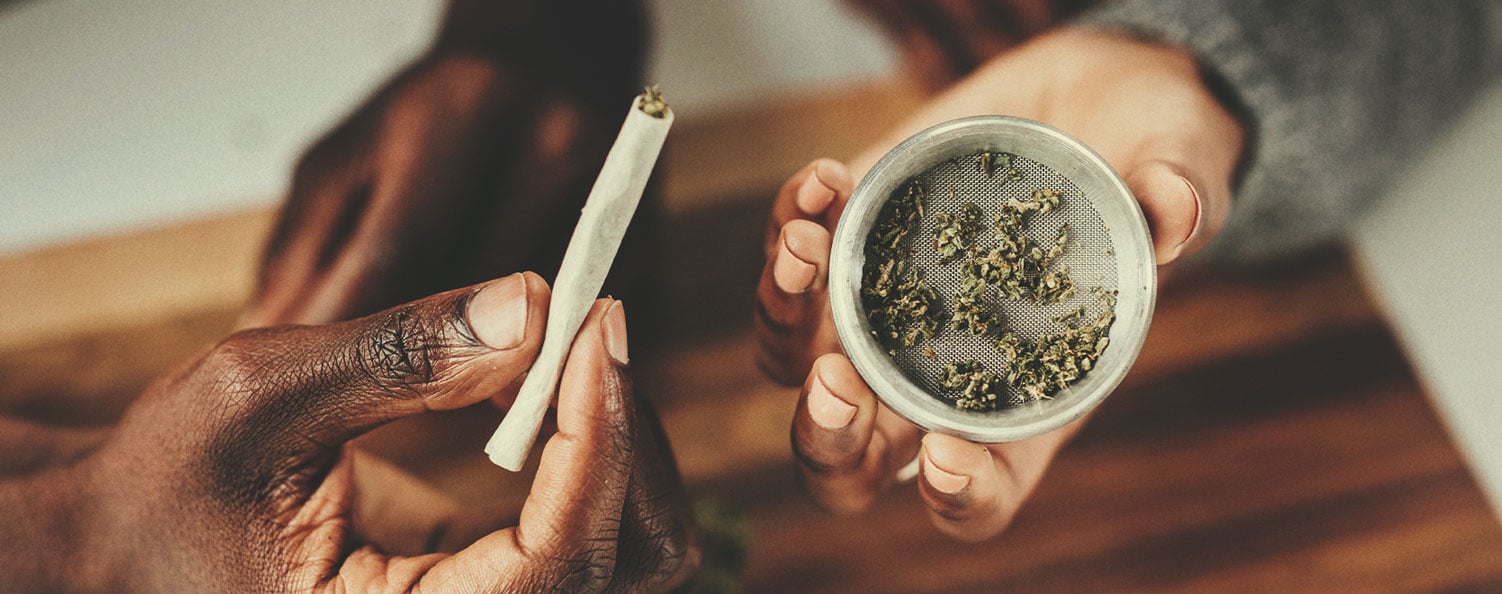
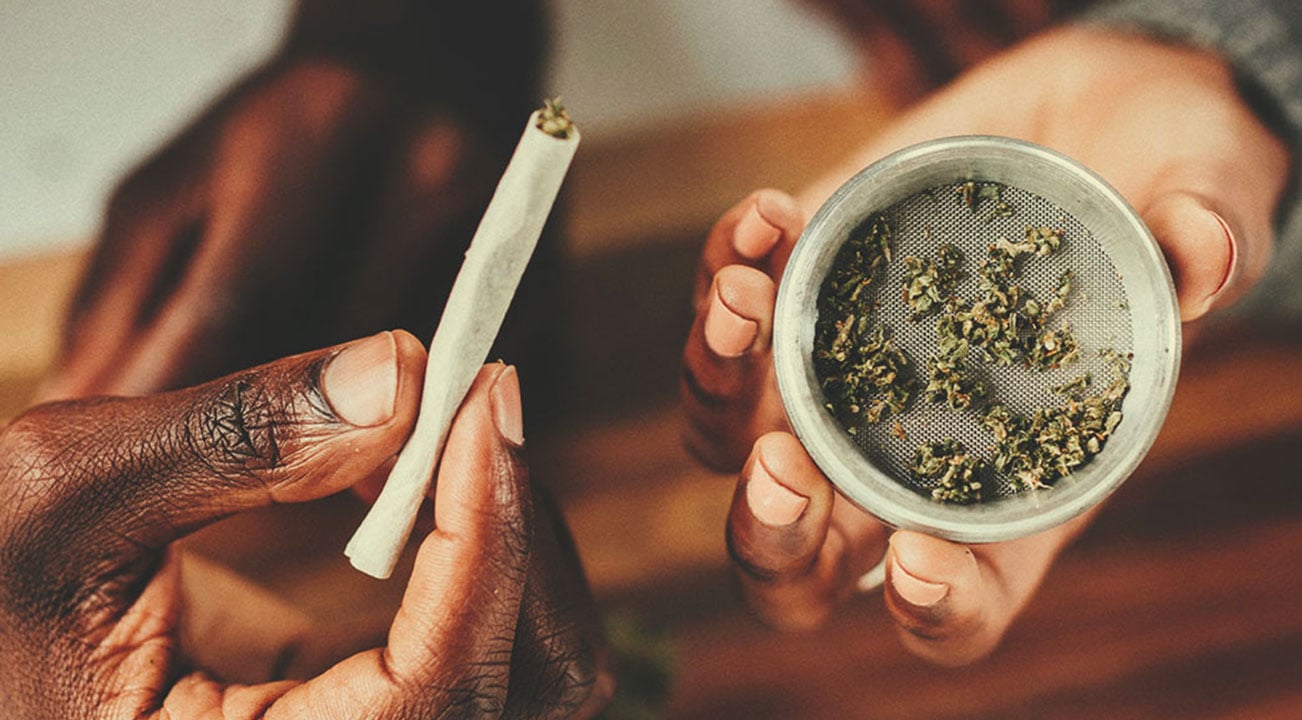
Cannabis, the Slave Trade, and the Origin of “Marijuana”
Given that the use of cannabis for psychotropic purposes in Africa predated that of Europe or the Americas, it makes sense that it may have been the African slaves who introduced it to those continents. It is estimated that over 10 million people were enslaved in Africa and taken across the Atlantic. Of these, many would have come from cultures where cultivating and taking cannabis were widespread.
Whether this knowledge was brought by African slaves or picked up by Europeans in Africa and taken to the Americas is unclear. But what we think we do know is that the word “marijuana” came with the slaves.
Recall that the “riamba” part of Ben-Riamba means cannabis. The prefix “ma” pluralises something, making it “mariamba”. In time, mariamba became “mariguana” in Mexico, moved north, became “marihuana”—and finally, “marijuana”.
Marijuana in Modern Africa
Cannabis has been grown continuously across Africa for at least the last 1,000 years. In modern Africa, the north, especially Morocco, is world-famous for producing some of the best hashish around. As mentioned, however, hashish production in North Africa is only around 100 years old, and only really boomed in the last half-century or so.
Since the financial crises of the 1980s, illegal cannabis production in Africa has been increasing. However, governments are realising that there is business in the growth of this crop, and illegal production is now giving way to a legal market.
Legalization
As cannabis legalization increases across the world, Africa is not getting left behind. To date, nine African nations have legalized cannabis. These are South Africa, Uganda, Zimbabwe, Zambia, Lesotho, the Democratic Republic of Congo, Malawi, Eswatini, and Morocco.
Changing laws in the US and Canada played a huge role in precipitating these changes.
Which brings its own problems. Duvall[8] identifies much of this trend as being neo-colonial. This is due in part to the fact that many of these laws require permits and capital that can often only be afforded by richer companies from the Global North. Out of the nine countries, Duvall identifies neo-colonialism, or what he calls “canna-colonization”, in six.
The issue does not lie in the legalization of cannabis, but in effectively pricing locals out of its legal production, which therefore means its profits can’t be reaped domestically.
The Future of Cannabis in Africa
One way or another, it looks as though Africa will become an even larger producer of marijuana. It remains to be seen what form this will take, and whether the neo-colonial aspect is a teething problem, or something more endemic.
What is clear, though, is that Africa’s long relationship with cannabis is not about to draw to an abrupt end, and is in fact entering another phase of its evolution.
- Cultivo y usos etnobotánicos del cañamo (Cannabis Sativa L.) en la ciencia árabe (siglos VIII-XVII) | Asclepio https://asclepio.revistas.csic.es
- Bulletin de la Société clinique de médecine mentale | 1921 | Gallica https://gallica.bnf.fr
- History of dagga in the South African archaeological record - witsgeoghonours https://sites.google.com
- (DOC) Cannabis (marijuana-hemp) in Ancient Egypt | Venice I S Attia - Academia.edu https://www.academia.edu
- Health and Medicine in Ancient Egypt: Magic and science https://www.fulcrum.org
- The Zulu people : as they were before the white man came / by A.T. Bryant | National Library of Australia https://catalogue.nla.gov.au
- My Second Journey Through Equatorial Africa From the Congo to the Zambesi in the Years 1886 and 1887, by Hermann von Wissmann et al. | The Online Books Page https://onlinebooks.library.upenn.edu
- A brief agricultural history of cannabis in Africa, from prehistory to canna-colony https://journals.openedition.org



























